One of the most exciting things about being a parent is watch your baby learn to do new things. I remember being so excited the first time my baby rolled over, then sat up. The hours of agony watching him almost crawl and eventually learn to walk. Watching your baby’s gross motor development is such an exciting time.
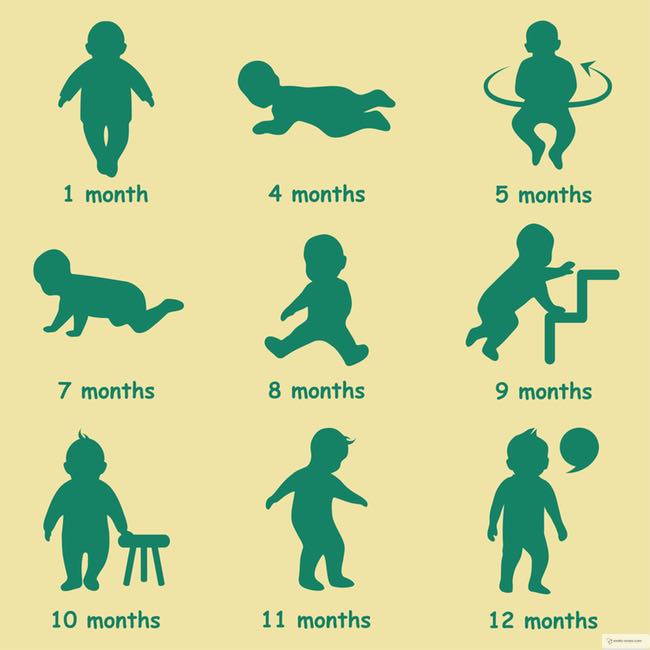
What are Gross Motor Skills?
Gross motor skills are the things that we do with our arms and legs, the big things that we do such as sitting, crawling and walking. Later on it will be running, jumping and climbing stairs.
The more delicate things that we do with our fingers, such as pointing, writing, holding things are called Fine Motor Skills.
This post contains affiliate links.
Babies Develop at Different Speeds
I once saw two nine month old babies side by side. One was running around, the other couldn’t even crawl yet. Neither of them were abnormal. They were both within the bounds of normal development. One had learnt to walk very early, the other hadn’t quite got there yet. But they were both entirely normal children who had no developmental problems.
As a parent, it can be a big mistake to compare your baby to others. If you’re worried, chat to your health professionals, but don’t get concerned just because your baby appears to be behind all your friends’ babies.
Developmental ’Age Limits”
Although children do develop at different rates, there are ages by which time they are expected to do certain things. These limits are called “age limits” and if your child doesn’t reach those age limits, if they can’t do those things by that age, it may be a sign that they need some more input to stimulate them. It also may be an indication that something else is wrong. If your child doesn’t reach their “age limits’, go and chat to your health care team.
For gross motor skills, the most important age limits are:
By 10 months your baby should sit unsupported.
By 18 months your baby should walk independently.
Normal Gross Motor Development of a Baby
At birth
Babies should be able to move all of their limbs. You can watch them kicking and flailing their arms. They don’t have any control of their hands or feet. They are just happy watching them move around.
Remember to start giving your baby some tummy time in their daily routine.
2 Month Old Baby
At two months old, your baby is pretty much the same. They should be starting to lift their head up. Her limb movements might be less jerky. She will also start to realise that her hands belong to her and hold them out in front of her to look at.
3 Month Old Baby
Gradually your baby is getting stronger. She will be able to hold her head up for longer. She will be enjoying playing in her baby gym now. She may even start to roll over. Babies normally learn to roll from their front to their back before they learn to roll from their back to their front.
4 Month Old Baby
Growing more and gaining more strength. She may be able to roll both ways now. She can probably push up onto her hands, lifting her head and chest while she’s on her tummy.
She can probably hold her weight on her legs. When you hold her on your lap, she’ll support her weight with her legs.
She may be starting to sit up with lots of pillows piled around her. Watch out for sharp objects as she’ll suddenly loose her balance and topple over,
5 Month Old Baby
At 5 months, many babies are starting to show signs of movement. She may fold her knees under her and do bottom exercises. Many babies learn to crawl, or push themselves backwards before they can move forwards.
Many babies are starting to sit unsupported by 5 months of age.
6 Month Old Baby
Most babies will be sitting unsupported by 6 months of age.
She will be getting better at the crawling position and lifting their weight up. Not all babies crawl. Some babies like to “bum shuffle” around rather than crawl. They go straight from “bum shuffling” to walking.
7 Month Old Baby
Some babies will start to pull themselves up and to standing and start “cruising”. That’s when they use the furniture to steady themselves to get around the room. Some babies can even stand unsupported by 7 months old.
Most babies love to bounce. If you don’t have a door bouncer, they are a good investment.
8 Month Old Baby
Baby now has complete head control. She will be able to get into a sitting position from her stomach.
9 Month Old Baby
Most babies are mobile by 9 months old. Some may even be walking (but don’t worry if yours isn’t.) At this age, they love to climb things, the sofa, the stairs, whatever they can find. It’s great to let them practise but make sure there is someone behind them so that they don’t hurt themselves.
Most babies will be able to stand for a period of time unsupported. They may be able to elegantly sit down again, without a big “bump”!
10 Month Old Baby
All babies of 10 months old should sit unsupported.
Most babies will beginning to take some steps whilst holding onto someone’s hand. They may also take a few independent steps.
11 Month oLd Baby
Babies are continuing to gain confidence in learning to walk, climbing and exploring the world. They may like to start playing with a ball, rolling it backwards and forwards.
12 Month Old Baby
Many babies are walking at 12 months old, but don’t worry if yours isn’t.
13 Month Old Baby
Most babies learn to walk at 13 to 14 months old.
Gross Development Beyond 15 months
After babies have mastered walking, they learn to run and jump. They learn to kick a ball and do other exciting things such as use a scooter and ride a tricycle.
Enjoy watching your baby master their arms and legs. It’s such an exciting time for them. If you are worried about your baby’s gross motor development, chat to your health care professionals.
How to Teach Your Baby To Sleep (Free Book)
How to Teach Your Baby to Sleep by Dr Orlena Kerek, mother of 4. Everything you need to know about baby sleep and setting up great sleeping habits. Join my newsletter to receive your copy
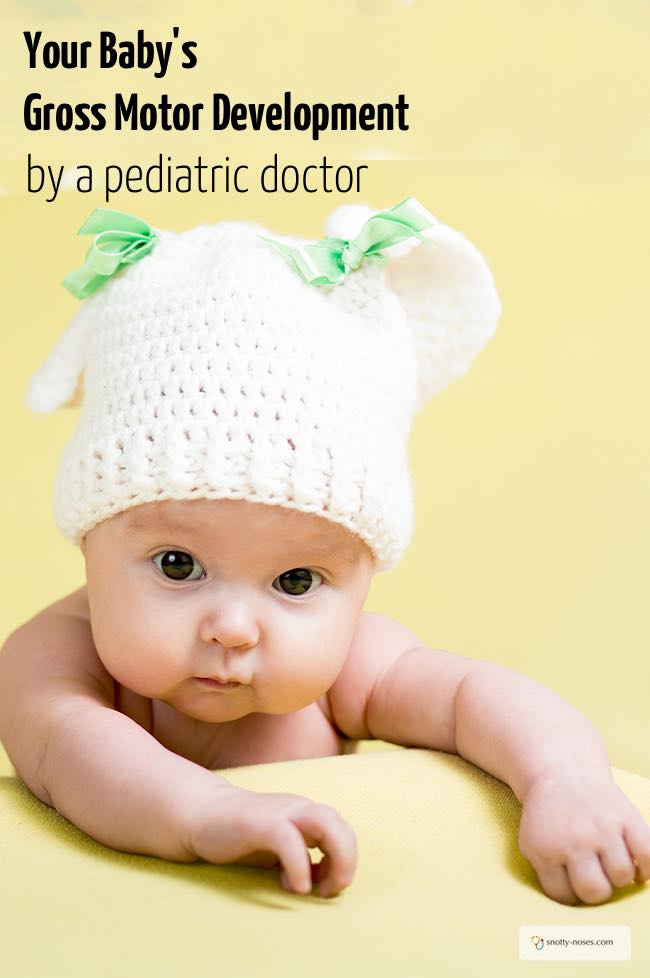
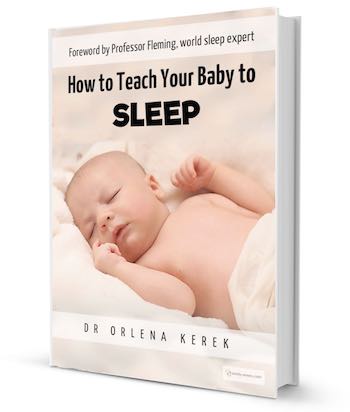
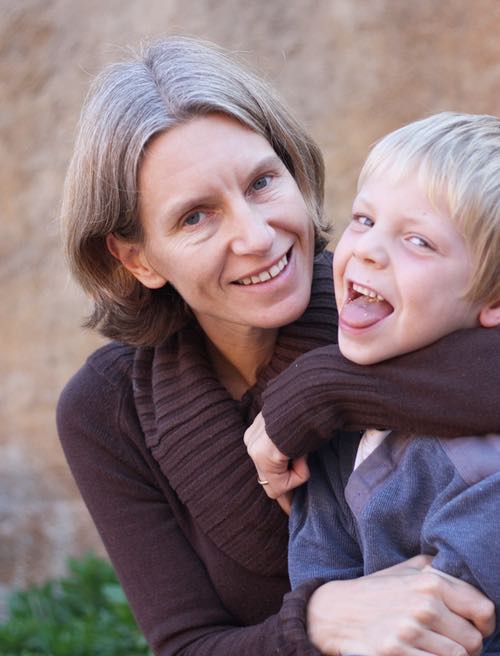
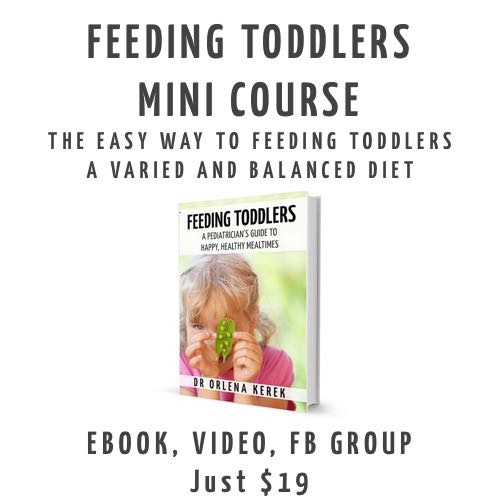 Feeding Toddlers.
Feeding Toddlers. Would you like your kids to eat more healthily? Check out the book!
Would you like your kids to eat more healthily? Check out the book!